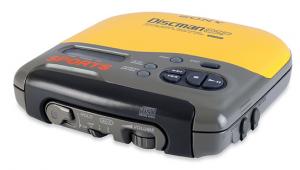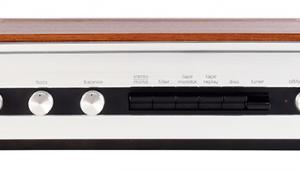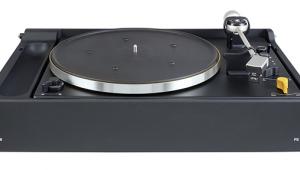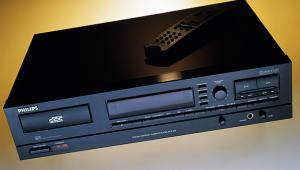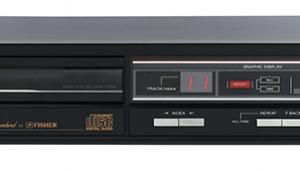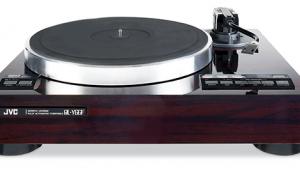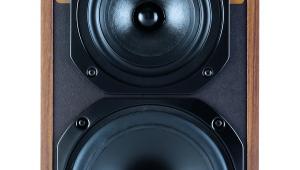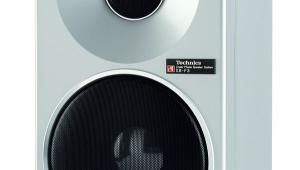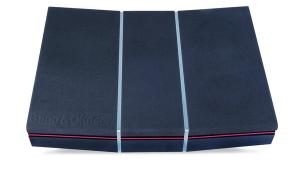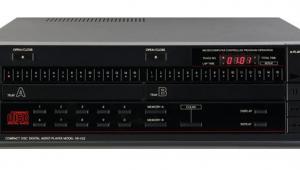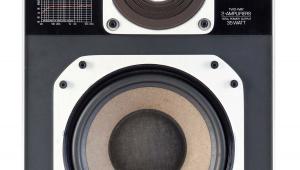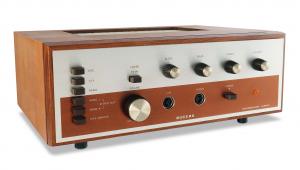Meridian MCD CD player Page 2
![]() Tim Listens
Tim Listens
Heard in isolation the MCD sounds recognisably like a Philips design. The pleasingly solid soundstage which is instantly engaging without the need for deep concentration is still there, as is the familiar sweetness of acoustic guitar, cymbals and the like. It is an easy sound to listen to and enjoy, free from distracting grittiness and obvious technical defects. To detect the difference the Meridian revisions make I found it necessary to listen to the MCD back-to-back with a standard Philips CD101 – a reasonable test, and one I suspect many prospective buyers conducted at the time to discover if the £100 premium was money well spent.
The obvious difference is that the MCD has a brighter, more intensely lit top end. This has the psychological effect of dimming the bass a little, although detailed listening revealed it to be largely unchanged. Given the criticism of CD players doing the rounds at the time of the MCD's launch, mostly that they sounded too steely and hard, this can only be seen as a brave decision, although in practice there is much to recommend the approach.
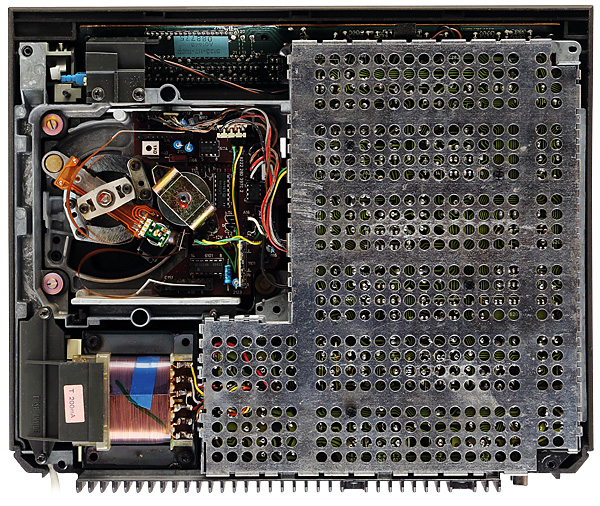
Extra Bite
Compared to the Vaseline-on-the-lens, soft-edged presentation of the Philips CD101, the MCD sounds a bit like an early Sony player that has been substantially tidied up and made to image properly. Tracks such as 'It Don't Matter To Me' by Phil Collins from Hello, I Must Be Going, [Virgin CDV2252] revealed a startling extra bite to the brass and percussion, both of which sounded like they were trying to jump out of the speakers.
This, set against a (typically Philips) solid spread of sound and a well proportioned bass line, is a voice CD players of this era seldom have. It reminded me of the type of moving-coil cartridge that has a kicked-up top end and a sting in its tail. It doesn't make for a relaxing listen and it makes your tweeters work hard, but it certainly grabs and holds your attention.
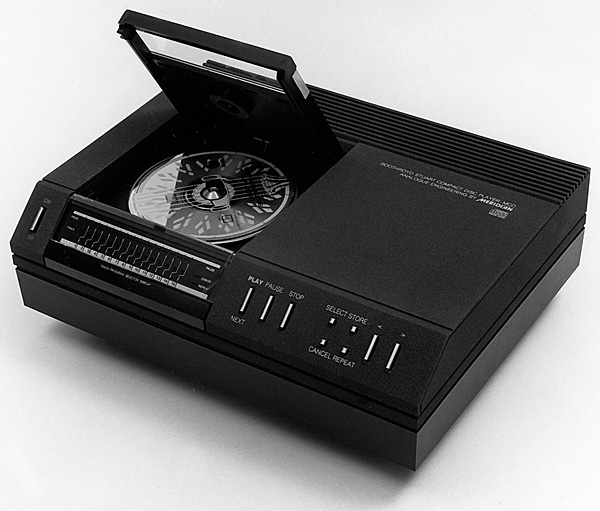
The Meridian approach was less of a success with smoother, richer-sounding material. Sade's album Diamond Life [Epic CDEPC 20644] has always struck me as tailor-made for the way early Philips CD players sound, no doubt through careful mastering at the production stage. Luxurious, rich and dark, it can be one of hi-fi's greatest pleasures. With the MCD, though, some of the set's tonal balance was lost. The song 'Cherry Pie', for instance, sounded overly pronounced in the midband and by contrast with the CD101 took on a flat, bland quality as a result.
In isolation, the performance still reached a high standard, but it was clear that the design of a CD player's filters is, like so much in hi-fi, a matter of balancing a set of competing compromises. Experimenting further, I found that 'Your Love Is King' was harder to place as to which player did the better job. The MCD displayed what I perceived to be improved vocal clarity but at the same time I felt that some of the track's percussion sounds were at times a little bit over lit and splashy.
Triple Choice
So the Meridian MCD does sound different to a Philips CD101, but I think to call it a definitive improvement would be tough to justify. It would be like saying that an apple tastes better than an orange: it all depends on what you like. In a system which already sounds a bit warm or laid-back it would be ideal, but in one that tends towards the bright and hard its revised sound would not be an advantage. In the end, though, all of this felt a bit like splitting hairs. Both players were at the forefront of CD technology at the time they were launched and the rest of the industry struggled to come up with anything that really got close in terms of sheer performance.
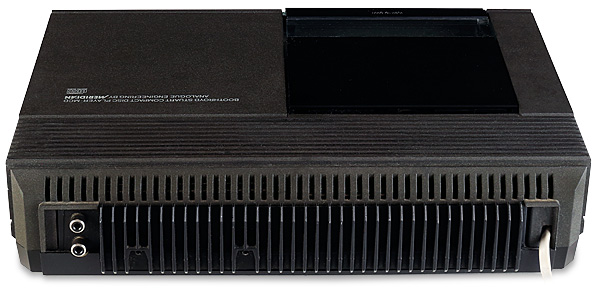
Both machines have aged well too. The MCD has still plenty to offer compared with many a player the last three-and-a-bit decades have thrown up. The Mission DAD 7000 sounds softer than the Philips it is based on, so in effect you have three choices. That's the great thing about hi-fi during this period – there was something for everyone.
Buying Secondhand
The MCD should be no more trouble to own than any early Philips player, but there are a few points to watch out for. Like anything painted in Nextel the finish gets sticky and peels away over time. This is unavoidable and difficult to do anything about as the legends and markings are printed on top of it.
Meanwhile, the standby mode means that most of the machine is still working hard all the time it is plugged in. This takes its toll on the various ICs, the voltage regulators and many of the smaller components which deteriorate with heat. Bear in mind that any prospective purchase could well have already been switched on for decades and may now need a fairly serious overhaul. As with the Philips version of the player, the electrolytic capacitors in the voltage doubler part of the power supply are especially vulnerable.
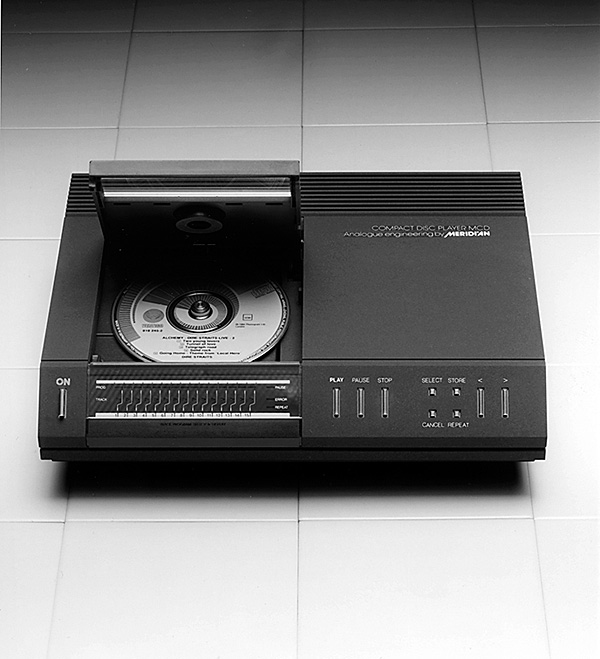
Other than that, the good news is that the normal Philips virtues – decent service manuals, long laser life and easy availability of most of the parts from scrap machines – are still present. Common Philips trouble spots such as poor soldering around the regulators, seizing up of the spindle motor and the lid interlock switch playing up all happen to the MCD too, but ultimately these are all simple things for a well-equipped workshop to resolve.
Hi-Fi News Verdict
An interesting and different take on the early Philips design, the Meridian MCD is a milestone machine and deserves a place in any collection of early CD players. In an otherwise soft-sounding system it may be just the thing that's needed for really enjoyable CD listening, plus it offers Philips' solidity and durability. The MCD is a genuinely esoteric product without the usual pitfalls. Shame about the Nextel though...


